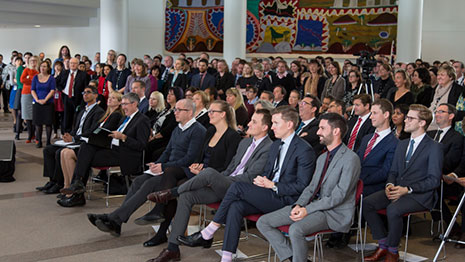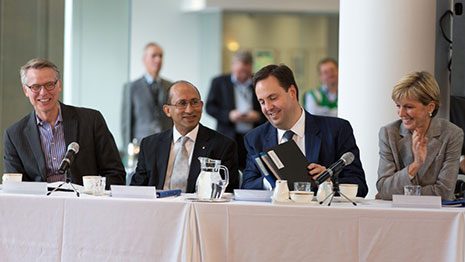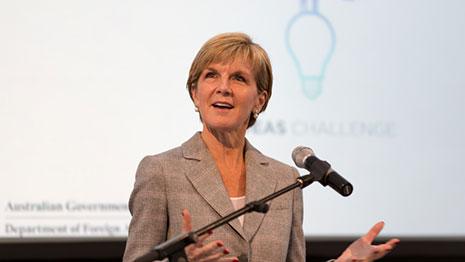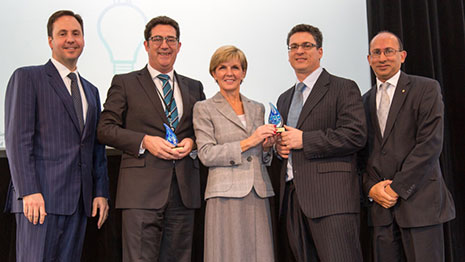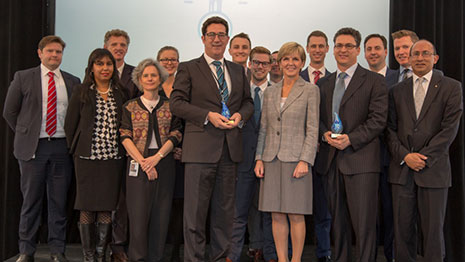On 15 June, more than 500 staff from across the Department of Foreign Affairs and Trade (DFAT) and the broader public service celebrated the finale of DFAT's inaugural Ideas Challenge.
As part of the department's ongoing innovation agenda, the Ideas Challenge invited staff to share and discuss new ideas and take responsibility for helping the Department better achieve its objectives. 392 ideas were submitted across all areas of DFAT's portfolio.
At what was an energy-filled event, ten finalists pitched their innovative ideas in front of the high-level judging panel (Foreign Minister Bishop, Parliamentary Secretary Ciobo, Secretary Varghese and innovationXchange International Reference Group member, Mr Chris Vein).
"Innovation is more important than ever and governments must apply innovation as a principle to deliver more effective, efficient services to effect positive change", Minister Bishop said.
"We have a wealth of talent within DFAT and I am delighted to hear these innovative and creative ideas. I hope this concept takes off across the public sector allowing the best ideas to be trialled, adopted and scaled up".
The two winners, whose concepts were considered particularly ground-breaking, will be supported with time and resources to further develop and pilot their ideas. The 'Cloud Passport' proposal has the potential revolutionise the way Australians travel by piloting document-free travel between Australia and New Zealand.
The 'No Win No Fee' proposal will explore DFAT's engagement with the private sector to see whether tax revenues in developing countries could be raised on a payment-by-results basis. This idea could leverage millions in additional financial flows which can then be invested in development outcomes. Minister Bishop said this idea went "to the heart of the new aid paradigm in harnessing the skills and resources of the private sector and adapting to a changing aid landscape".
Given the quality of the remaining eight finalist ideas, DFAT will also explore and implement each idea where possible. Other ideas included improving DFAT's external communication (including during a crisis), developing greater gender equality in the Pacific (by helping women and girls access affordable feminine hygiene products and increasing awareness and support for victims of domestic violence), boosting economic opportunity for indigenous populations here and internationally and considering how we use behavioural insights to improve development impact.
The Department also announced on 11 June a further ten ideas which would be implemented through the relevant Divisions as part of the modernisation agenda.
The Ideas Challenge has been a clear demonstration of DFAT staff's creativity and talent. As Secretary Varghese said, the Ideas Challenge has "helped start a conversation across the Department about innovation and about how we can better achieve our objectives".
"I want to see innovation embedded in our culture, and it will be important to ensure the momentum behind this process is not lost," he said.

